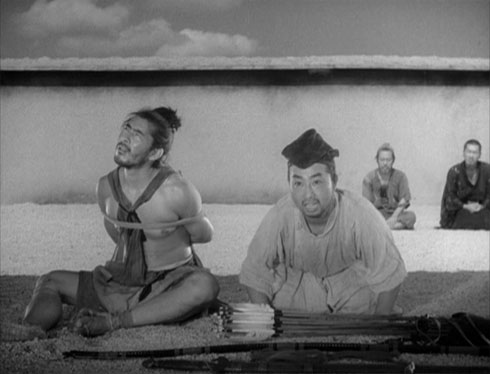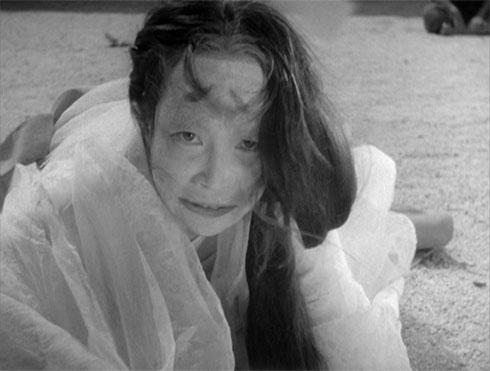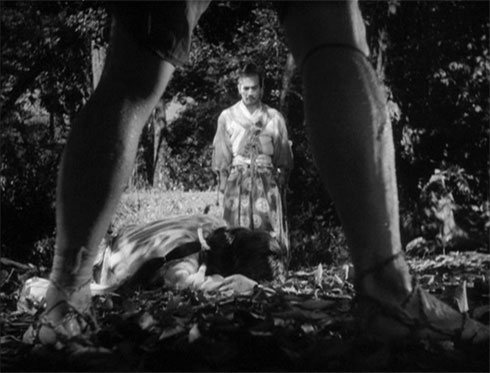A part of this viewing list: Criterion Collection Spine #138: Akira Kurosawa’s Rashômon.

There isn’t a whole lot to say in critical terms about Rashômon that hasn’t been said before, and better than I could say it. So instead of talking about it in terms of its examination of truth, its cultural context, or its innovative style, I’m going to review this film in terms of what makes it entertaining; one of those rare foreign films that just about everyone can enjoy. And since Japan decided that films made before 1953 should be released into the public domain, you can watch the entire thing on Google Video. I’ve linked to it below.

Much ado has been made about Toshirô Mifune’s acting as the bandit Tajomaru, but all of the performances are superb. This time around I was struck by the quality of Masayuki Mori’s portrayal of Takehiro, a character whose transformation from story to story is even more wide-ranging than Mifune’s. At least Mifune did not have to play a dead man. This leads to the creepiest part of the film. The testimony of the late Takehiro comes through the employment of a local medium.

Quite possibly the ugliest woman ever, a sequence follows with Takehiro’s lo-fi and tormented voice lip-synched to the medium’s trance thrashings. I hadn’t made connections between this and Ringu, but now that I have it seems almost certain that Ringu takes some of its cues from this scene. The film is full of sex and violence, but it never gets old since the suspense built by the conflicting testimonies refreshes the uncertainty. The use of suspense is worthy of Hitchcock, especially in terms of defying expectation, since just about everyone claims to have killed Takehiro [including Takehiro] instead of the expected denials.
Quite simply, Rashômon is a good movie because its foundation is good storytelling. It becomes a great film due to its additional philosophical examination of truth, but the excellent acting makes this discussion seem natural and the film avoids becoming overly preachy, overly farcical or overly tragic and instead seems as natural as a summer rainstorm.

• Criterion Essay by Stephen Prince.
• Kurosawa on Rashomon.
• Roger Ebert review.
• Dan Schneider Review.
• Watch the whole movie on Google Video.